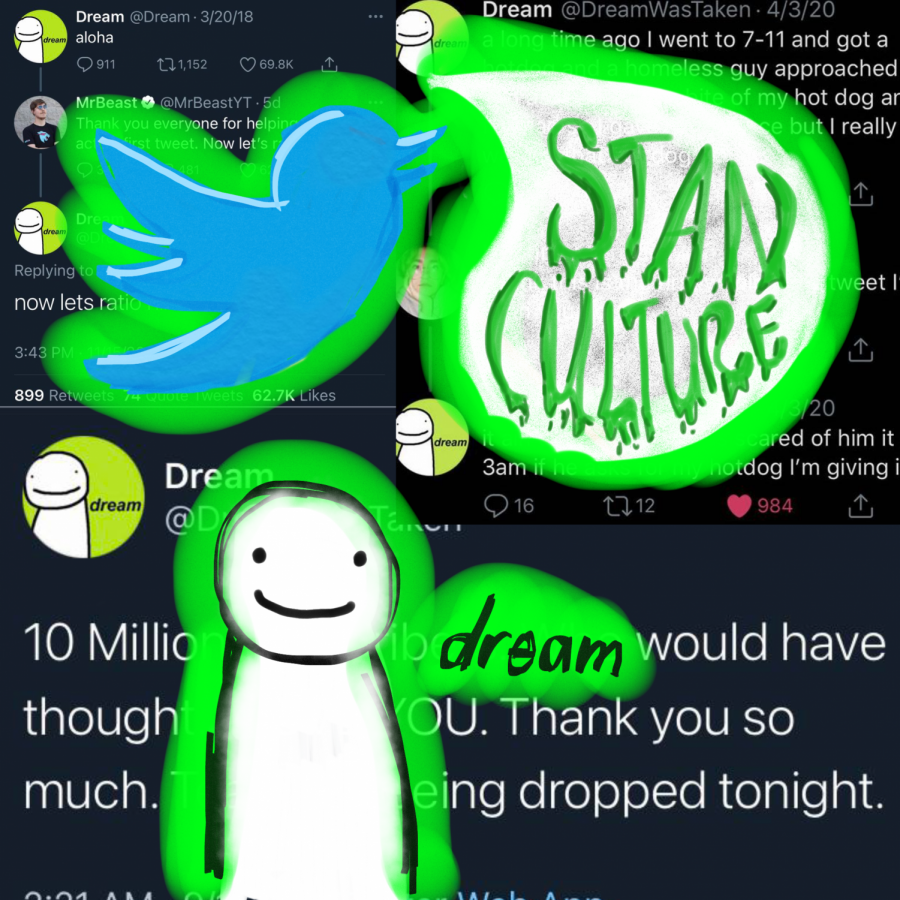Toxic Fanbases: Dream & Stan Culture
Stans aren’t cool, they’re creepy and manipulative.
“Stanning” is becoming a creepy and manipulative culture on Twitter, particularly amongst the fans of the YouTuber Dream.
If you’ve been anywhere on the Internet or social media recently, you’ve most likely heard about the Minecraft YouTuber, Dream. Some of you reading this may actually be a fan of Dream and his friends on the ever popular Minecraft server Dream SMP. Having surpassed 11 million subscribers on YouTube in less than two years, it’s safe to say that Dream is a big influencer on the Internet.
There’s a big problem amongst the Dream fanbase, and it has nothing to do with his content. The problem is the stans.
A stan is a combination and shortened version of the phrase ‘stalker fan.’ Stans know everything about you, write excessive fan fiction, post about you constantly, make video edits of you with hearts around your face – yeah, they basically stalk you. Stans of Korean Pop (K-Pop) are notorious for their unhealthy obsessions with the groups and people they idolize. There’s nothing wrong with liking K-Pop or Dream and identifying as a fan, the problem is the stan’s creepy and controlling behavior which ruins the experience of being a fan for everyone.
The relationship between a creator on Youtube, a streamer on Twitch, or an ordinary person with a celebrity is a complicated one. Oftentimes these stans feel that they personally know their favorite creator and that they are friends. This is called a parasocial relationship. For example if Dream tweets “I love you,” many stans take that as a personal statement. The truth is that he doesn’t know any of his fans. You are a person, but also just another subscriber count.
Because of this one sided relationship, a stan takes everything personally. They feel that their idol understands them, relates to them, and though they may consciously know that they don’t know them, they feel emotionally connected to them. This is most likely why it is easy to fall into obsessive behavior in a parasocial relationship. There are little boundaries drawn between the idol and the stan, the stan believes that they have leverage or power over their idol because they consider them a friend. Dream’s stans believe exactly this. They have all sorts of manipulative power because they believe they are defending Dream, when he is perfectly capable of defending himself.
After a while, this toxic relationship results in the creator feeling immense pressure. The stan believes that they have an opinion and a voice reserved for close friends and family, so they may suddenly become the speaker for the fan community even if their opinion is unnecessary and has little to do with the conversation at hand. A good YouTube creator will listen to their fans and adjust when things aren’t working, but when an obsessive stan gets involved many of them feel coerced into carrying out the stan’s wishes.
There are plenty of other creators speaking out against these toxic stans, and many have distances themselves from the culture entirely. One quote I read from a Twitch streamer asked anyone involved in stan culture to unfollow him, as they were not the kind of people he was looking to build a community around. Again, there is nothing wrong with liking a YouTuber, musician, or celebrity. You can enjoy someone’s content and find a healthy community with other people who do the same, but obsessively following them and manipulating others around you is wrong.
Stans are not quirky or cool, they are unhealthy and ruin the fun of being a fan for everyone. Instead, get off Twitter. Go hang out with your friends. Play a sport. Take up a new hobby. Go outside. Life does not – and should not – revolve around your favorite content creator on YouTube.




